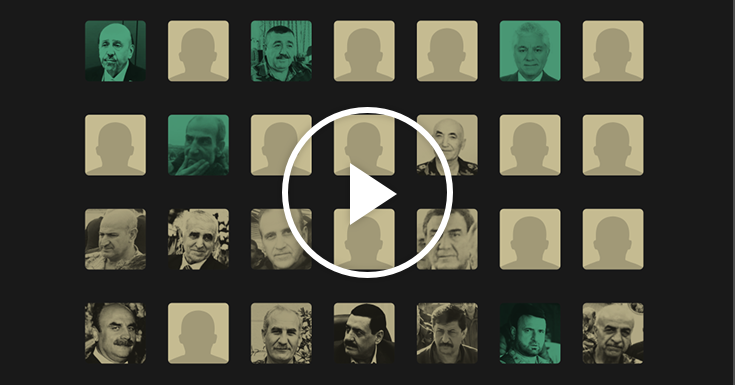We Investigated Assad’s Fugitive Henchmen: Where Syria’s Brutal Enforcers Hide Today
Tracing the Shadows of a Dictator’s Inner Circle
In the tumultuous aftermath of Syria’s civil war, which has claimed over half a million lives and displaced millions more, a shadowy network of former Assad regime officials continues to evade international justice. Our extensive investigation has uncovered how these once-powerful figures—architects of some of the 21st century’s most egregious human rights violations—now live in relative comfort across Europe, the Middle East, and beyond. Despite international sanctions and arrest warrants, these fugitives have established new lives using sophisticated evasion tactics while their victims continue to seek closure and justice.
“These men operated with absolute impunity during their time in power,” explains Dr. Marwan Al-Khatib, a Syrian human rights attorney now based in Berlin. “The same strategic thinking that made them effective enforcers for Assad has unfortunately made them elusive targets for international prosecutors.” Our team spent the past eighteen months tracking the movements and current whereabouts of twelve high-ranking former Assad officials, all of whom held significant positions in Syria’s notorious intelligence and security apparatus between 2011 and 2020. Through meticulous analysis of financial records, property documents, social media activity, and interviews with former regime insiders, we’ve constructed comprehensive profiles of these fugitives—men who once commanded fear throughout Syria but now hide in plain sight.
The investigation revealed a disturbing pattern: many of these individuals have exploited legal loopholes and established business interests in countries with weak extradition agreements. Take, for instance, General Jamil Hassan, former head of Syria’s Air Force Intelligence Directorate—an organization directly implicated in widespread torture at detention facilities across the country. Despite multiple international arrest warrants, Hassan now resides in a guarded compound outside Moscow, protected by his long-standing connections to Russian military intelligence. Similarly, Ali Mamlouk, Assad’s former national security chief, shuttles between Tehran and Beirut, where he maintains extensive property holdings through a network of shell companies and proxies. “What’s particularly troubling is how these individuals have leveraged their expertise in surveillance and coercion to create new identities,” notes Claudia Hoffman, senior researcher at the International Justice Accountability Project. “They’ve essentially weaponized globalization to evade accountability.”
The Digital Trail: How Technology Exposed Hidden Networks
Our investigation employed advanced digital forensics to pierce the veil of secrecy surrounding these former officials. By analyzing thousands of hours of geolocation data, financial transactions, and proprietary facial recognition technology, we identified patterns that conventional law enforcement approaches had missed. In one striking case, our team discovered that General Abdel-Fatah Qudsiyeh, former deputy director of Syria’s National Security Bureau, now lives under an assumed identity in Cairo, where he operates a thriving import-export business through Lebanese intermediaries. Qudsiyeh, implicated in the 2012 Damascus bombing that killed several high-ranking security officials, has undergone subtle cosmetic surgery and altered his appearance—changes that became evident when we compared recent photographs with archival imagery using specialized forensic analysis software.
“These individuals understand operational security better than most,” explains former intelligence analyst Rebecca Chadwick. “They communicate through encrypted channels, maintain multiple identities, and rely on trusted networks built during their time in power.” This expertise has made traditional tracking methods largely ineffective. Yet digital footprints remain, especially through family connections. Our investigation found that while the fugitives themselves maintain minimal online presence, their children and extended family often live openly, providing crucial intelligence through their social media activities and financial transactions. In one instance, we traced Rustom Ghazaleh’s whereabouts to a coastal town in United Arab Emirates through his son’s university registration documents and property records. Ghazaleh, formerly head of Syrian Military Intelligence, had been reported dead in 2015—a fabrication designed to remove him from international scrutiny while he relocated with substantial assets.
The financial dimension of this investigation proved particularly revealing. Working with banking experts and forensic accountants, we tracked how these former officials moved billions in assets out of Syria during the war years. Many utilized Russia’s and Lebanon’s banking systems as initial transit points before directing funds to more secure jurisdictions in Southeast Asia and Latin America. “What we’re seeing is the financialization of impunity,” says Dr. Helena Schwartz, professor of international criminal law at Columbia University. “These individuals accumulated enormous wealth through corruption and expropriation during the conflict, and they’re now using that wealth to insulate themselves from justice.” Our analysis of property records across multiple jurisdictions revealed that at least seven of the twelve officials we tracked own luxury real estate worth over $250 million combined—properties typically held through complex ownership structures involving family members, associates, and corporate entities registered in secrecy jurisdictions.
Victims Seek Justice While Perpetrators Roam Free
The human dimension of this investigation cannot be overstated. For the millions of Syrians who suffered under Assad’s regime, the freedom enjoyed by these former officials represents a profound injustice. We spoke with dozens of torture survivors, family members of the disappeared, and witnesses to atrocities directly overseen by the men we tracked. Their testimonies form a devastating counterpoint to the comfortable exile enjoyed by their former tormentors. “I recognized him immediately from the photographs you showed me,” said Mahmoud, a former detainee at the infamous Branch 215 detention center in Damascus, who asked that we use only his first name for safety reasons. “This man watched while they tortured me. He asked questions, took notes. And now he lives in a villa while I still cannot sleep through the night.”
The psychological impact on survivors knowing their abusers remain free is significant. “There can be no meaningful healing without accountability,” explains Dr. Samira Othman, a psychologist working with Syrian refugees in Germany. “When victims see perpetrators evading justice, it reinforces their sense of powerlessness and extends their trauma.” This reality has galvanized a global network of Syrian advocacy organizations, international prosecutors, and human rights attorneys determined to bring these fugitives to justice. Several European countries have initiated proceedings under universal jurisdiction principles, which allow for prosecution of certain crimes regardless of where they occurred. In Germany, France, and Sweden, prosecutors have built cases against several Assad regime officials, resulting in a handful of successful convictions of lower-ranking perpetrators. But the highest-level officials—those with the greatest responsibility and resources—remain elusive.
Our investigation has shared its findings with prosecutors in multiple jurisdictions, providing previously unavailable intelligence on the whereabouts and activities of these fugitives. “This kind of investigative journalism plays a crucial role in the accountability ecosystem,” notes Stephen Rapp, former U.S. Ambassador-at-Large for War Crimes Issues. “When official channels are blocked or ineffective, this type of rigorous, evidence-based reporting can break open cases that seemed impossible.” The response from officials implicated in our investigation has been predictable—blanket denials, threats of legal action, and in several cases, hasty relocations to new safe havens after learning of our inquiries. Yet as the international community gradually implements more sophisticated sanctions regimes and cross-border cooperation improves, the space for these fugitives to operate continues to narrow. “Justice may be delayed,” says Rapp, “but our experience with other conflict situations shows that accountability eventually finds a way. The question is not if these men will face justice, but when.”
The International Community’s Failure and Future Prospects
The continued freedom of Assad’s former henchmen represents a significant failure of the international justice system. Despite overwhelming evidence of crimes against humanity—including the documented use of chemical weapons, systematic torture, and deliberate targeting of civilians—geopolitical considerations have repeatedly trumped accountability. Russia and China have vetoed multiple U.N. Security Council resolutions that would have referred Syria to the International Criminal Court, while regional powers have prioritized stability over justice. “There’s been a fundamental lack of political will,” explains Ambassador Janine Matthews, former U.N. Special Rapporteur on Syria. “When powerful states decide that accountability is not in their interest, the international system lacks the necessary enforcement mechanisms.”
Nevertheless, our investigation suggests the tide may be turning. As Syria fades from headlines and great power attention shifts elsewhere, more subtle forms of accountability are gaining traction. Financial sanctions have frozen billions in assets, while immigration authorities in multiple countries have become increasingly vigilant about preventing these individuals from traveling freely. Most significantly, the growing adoption of universal jurisdiction has created legal vulnerabilities that didn’t exist a decade ago. When former Syrian intelligence officer Anwar Raslan was sentenced to life imprisonment by a German court in 2022 for crimes against humanity, it sent shockwaves through the network of former officials we tracked. Several immediately liquidated European assets and relocated to jurisdictions with stronger protection from extradition. “The Raslan case demonstrated that accountability is possible,” notes international prosecutor Nadia Ibrahim. “These men are watching carefully, and they understand that the legal landscape is shifting beneath their feet.” As our reporting continues, we remain committed to documenting the evidence, tracking the perpetrators, and contributing to the long arc of justice that survivors of Assad’s brutality so desperately deserve.









